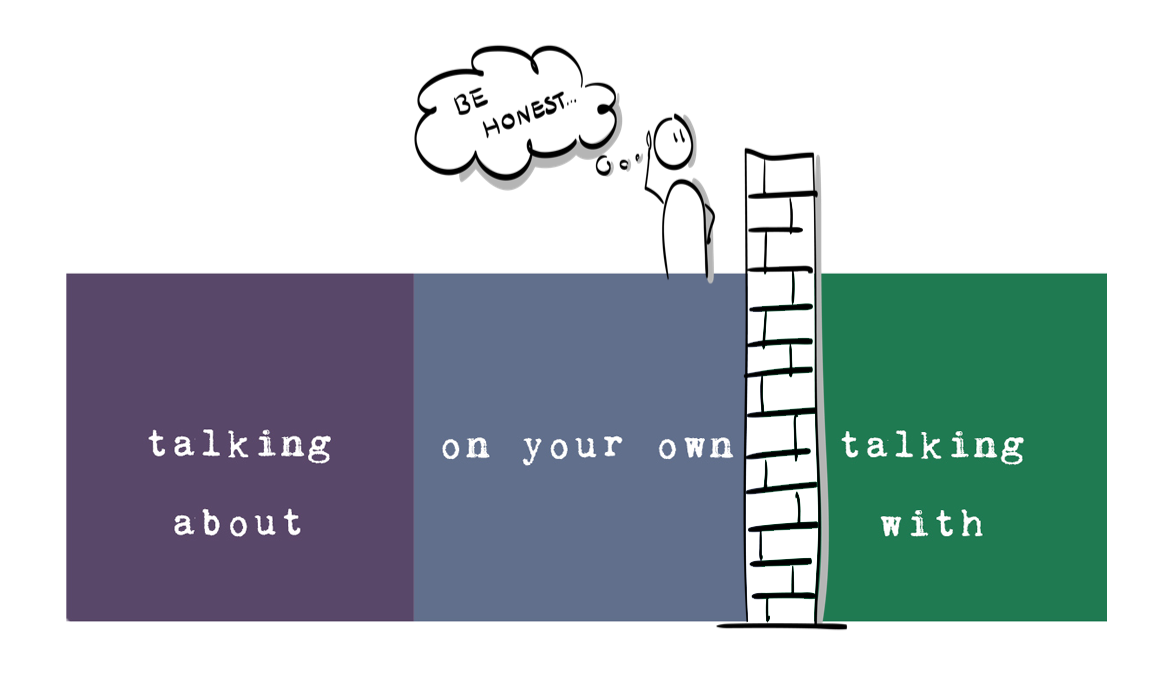When we talk to teams about how they cooperate, the first thing we often hear is ‘We cooperate really well’. But when we ask more questions, it turns out that they mean one of two basic kinds of cooperation: (1) groups that are really on the cooperating side of the Scale of Cooperation, and move between feedback and flow; and (2) groups that are engaging in avoidance, but are nice enough to each other to see this as cooperation. And these two kinds of cooperation yield very different results. Why do teams sometimes find it so hard to see the difference – and, above all, why is it so hard for them to take the step from avoidance to real cooperation?
Being honest is scary
This is what we call the barrier between avoidance and cooperation. Crossing it is one of the most difficult steps for people and teams to take, for it means being honest – being nice is no longer enough. ‘Be nice when you can, be honest when you must.’ And being honest is scary. It requires self-confidence, faith in shared goals, appreciation of others, and the courage to take the step and share your opinion honestly – in a word, feedback! There are often all kinds of conscious or unconscious assumptions that make us doubt whether we should give feedback: ‘What if I upset him?’ ‘He’s so much more experienced, who am I to give him feedback?’ ‘I’ve already mentioned it so often, why should it change now?’ ‘I’m not his superior, it isn’t appropriate to give feedback.’ ‘Whatever will he say to me?’
Such thoughts sometimes stop us from crossing the barrier and talking about things. But not talking about things won’t help the team either. Maybe we can give a hint, in the hope that someone will hear it, understand it and respond to it. But this can just as easily lead to disappointment and frustration if no-one does – and frustration will make it harder to be really honest and give feedback the next time.
Growing together
Another factor that makes the barrier harder to cross is the risk of losing freedom – for avoidance means everyone doing their own thing in their own way. If we give real feedback – and are open to each other’s ideas – we want to learn from it so that we can move towards our goal together. That means things may not always go ‘your way’. You may then lose some of the freedom of avoidance. But you get something much better in return: growing together, building on each other’s ideas and qualities, appreciation, flow and better results than you could each have achieved on your own.
In short, the barrier on the way to cooperation may sometimes seem high. But if you dare to take the step and be honest when you must, express appreciation when you can, and work together to build cooperation, the result will be a top team, and you’ll be able to experience flow at moments of high pressure.
